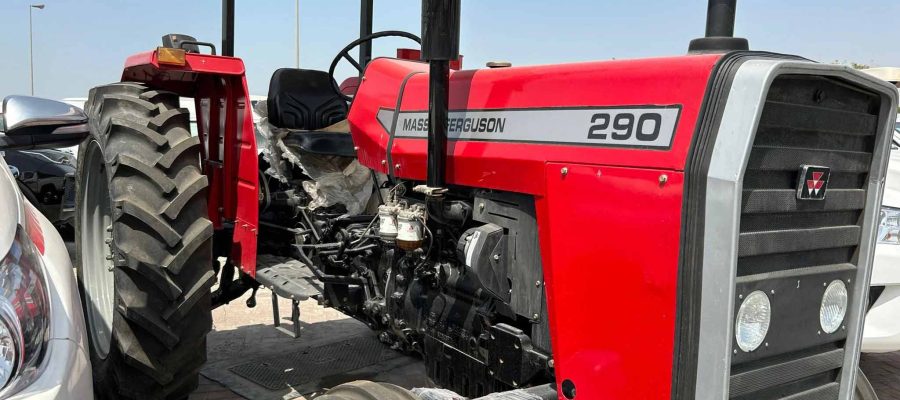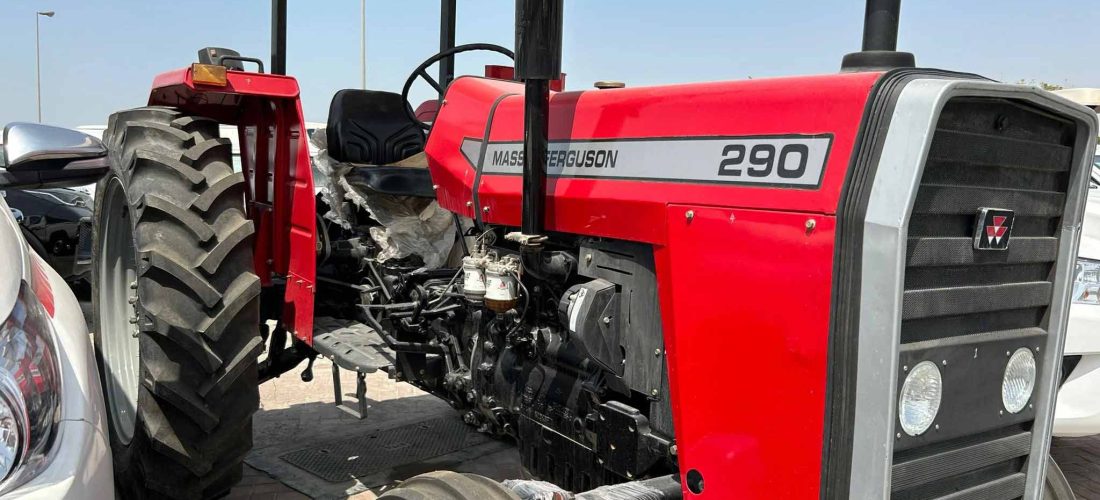
- December 22, 2025
- By: Massey Ferguson UAE
- in: Agricultural Machinery, Massey Ferguson Tractors

Selecting the right tractor is one of the most important decisions a farmer in Sudan can make. The right machine can significantly boost productivity, reduce labor costs, and improve crop yields. However, with diverse farm sizes and varying terrain, choosing the perfect tractor requires careful consideration. This guide will help you navigate the key factors to find a machine that fits your specific needs.
The size of your farm is the primary factor that should guide your tractor choice. A machine that is too small will be overworked and inefficient, while one that is too large is an unnecessary expense.
For small-scale farmers, a compact or sub-compact tractor is often the ideal choice. These machines, typically in the 25-50 horsepower (hp) range, are agile, fuel-efficient, and more affordable. They are perfect for tasks like ploughing, tilling, and hauling small loads. A smaller tractor is easier to manoeuvre in tight spaces and costs less to maintain, making it a practical investment for those with limited acreage.
If your farm falls into the medium-sized category, you will need a more robust utility tractor, usually between 50 and 90 hp. These tractors offer a good balance of power and versatility. They can handle heavier implements for more demanding tasks like planting, spraying, and hay baling, while still being nimble enough for general farm duties. This category offers a wide range of options to match your specific operational needs.
Large commercial farms require powerful, high-horsepower tractors (90 hp and above) to cover extensive areas efficiently. These machines are built for heavy-duty work, such as deep ploughing and operating large seeders. Their advanced features and size are essential for maximising productivity on a large scale, ensuring that critical tasks are completed within tight seasonal windows.
Another crucial decision is whether to opt for a two-wheel drive (2-WD) or four-wheel drive (4-WD) tractor.
2-WD Tractors: These are generally more affordable and have a tighter turning radius, making them suitable for dry, flat land and lighter tasks. They are a cost-effective solution for many small to medium farms in Sudan.
4-WD Tractors: A 4-WD tractor provides superior traction and pulling power, which is essential for working in wet, muddy conditions or on hilly terrain. While they have a higher initial cost, their ability to work in challenging conditions without getting stuck can prevent costly downtime.
While budget is always a key consideration, prioritising durability is a wise long-term strategy. A cheaper tractor might save you money upfront, but frequent breakdowns and high maintenance costs can quickly erode those savings.
Investing in a reputable brand known for its reliability ensures your tractor will withstand the demands of farming in Sudan’s climate. Brands like Massey Ferguson have a long-standing reputation for building durable and efficient tractors that offer excellent value over their lifespan. A reliable machine means more time in the field and less time in the workshop, directly contributing to your farm’s success.
By carefully evaluating your farm size, terrain, and operational needs, you can select a tractor that will be a valuable and dependable partner for years to come.

Post a Comment